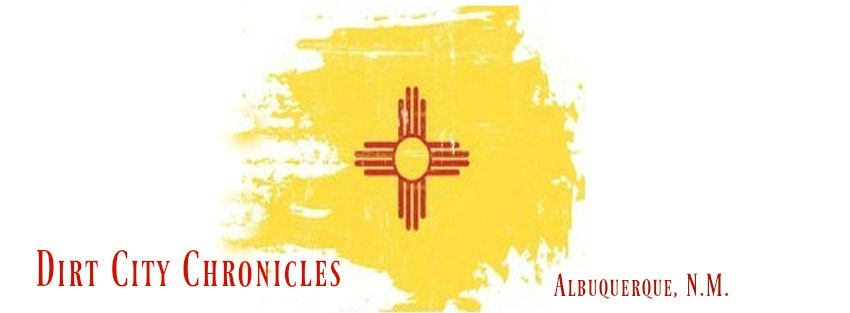The upcoming episode (#11) of That Dirt City Sound features several early 1990's bands. All the music on this episode has been converted from analog cassette tape to mp3 files. When I first started collecting music by Albuquerque bands and artists, the most common medium was the cassette. By sorting for hours at local music stores, I managed to build up a modest collection. The better music shops (Bow Wow Records) would separate the local stuff, making it easier to browse the racks. Some stores were into local music, others were not. However like panning for gold, every once in a while you stumbled upon a nugget. As I made my regular rounds, what I didn't know then, is how much the world of music collecting would change in the upcoming years. In the 1970's I collected vinyl lp's by the hundreds, they were cumbersome and after having to move in and out of several apartments (sometimes in a hurried fashion) I jettisoned the vinyl and converted to cassette tapes. I recall an episode of Everybody Loves Raymond, where Raymond tries to get his dad to ditch his scratchy old records by buying him a cd player. The change doesn't go over well, as Raymond's dad really prefers his music with the skips and pops of vinyl. I never cared for those defects, not to mention that putting mix tapes together using vinyl records was a chore (although dubbing from cassette to cassette was even more tedious.) And of course, both the needle and the record would degrade with each play. Many argue the higher sound quality of vinyl compared to newer formats, maybe so, right up until the moment you hear that first disturbing scratch or skip.
The endless loop tape cartridge was first designed in 1952, entrepreneur, Earl Muntz found a way to incorporate this technology into automobile music systems. In 1962 he developed a four track cartridge stereo system that he called "CARtridges." He licensed music from major record companies and duplicated them on these cartridges. In doing so he revolutionized the way we listened to music in our cars. 8-tracks had such a short life span, mostly because of the phenomenon of having the player "eat" the tape. This was due to the extreme environment found in cars and the misalignment of the tape heads. One remedy involved shaking the tapes or wedging a piece of cardboard into the slot. While recordable 8-tracks were available, putting together mix tapes on 8-tracks, never caught on. Compact Cassette tapes were a god send, convenient and affordable (You could buy them by the dozen). Invented by Philips in 1962 as a medium for audio storage, they quickly caught on and by the early 1970's were quite common. Compact Cassettes held up much better than 8-tracks, if they broke, you could open them up and take a stab at fixing them. I became a decent cassette surgeon over the years, transplanting and splicing with confidence. The compact cassette also gave birth to that great American social tool; the mix tape. Millions of mix tapes were fashioned, with their creators honestly believing each one to be the greatest collection of songs ever. Anyone who traveled on American roads in 80's and 90's remembers seeing magnetic recording tape decorating the roadsides. How many of those were mix tapes, tossed out of car windows after break ups?
The Compact Disc or CD is an optical disc originally developed as a storage medium. Sony demonstrated the first compact disc in 1976, but it wasn't until 1979 when Philips introduced the compact disc audio player that the medium became commercially viable. After a period of hand wringing, the major record companies finally gave in and the first cd albums were released in the early 1980's. Compact discs would change music forever, getting rid of the annoying pops, hiss and extraneous noise associated with other mediums. The advent of recordable cd's allowed music buffs to take the art of mixing and copying to a new level. The first compact disc recorders were expensive and had limited features. However the marriage of cd burning technology and the computer revolutionized home recording and collecting. Looking back fondly at the early days of music downloading on the net, it was a free-for-all, no restrictions, no fees and no guilt. Today with flash drives, memory cards & external drives, building a huge collection of music is easier than it ever was, if you're willing to pay subscription fees or buy by the download. I love hi-tech, I love computers, I love change when it makes my life easier. I'm grateful for it, otherwise I'd be pounding this out on a Smith-Corona, while flipping vinyl on my turntable.




